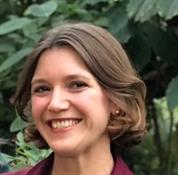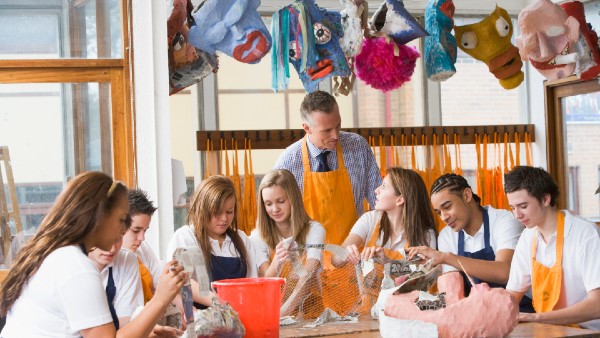Susannah Hardyman explains how drawing on the diverse backgrounds of volunteer tutors to teach disadvantaged students has proved a powerful win-win.
In 2018, Sab, an acclaimed maths teacher, left Turkey to seek refuge in the UK, escaping political persecution in his home country. Arriving in London, he felt alone and alienated, a common experience for many refugees. After a few weeks in the UK, Sab felt the need to put his passion for teaching to good use and became a volunteer tutor with Action Tutoring, an education charity focused on helping disadvantaged pupils progress academically.
A few months later, one student described his maths sessions with Sab as ‘[among] the best I’ve ever had’. Years later, Sab would go on to become a maths teacher in a school in London, helping hundreds of primary school children grasp complex maths concepts, inspiring them to take up careers in STEM subjects, and guiding their futures positively.
This is just one of many inspiring examples of how talented individuals from diverse backgrounds can create social change and break the barriers of exclusion.
It’s a win-win:
- Pupils improve their knowledge in maths, get better grades and connect with a tutor from a different background.
- Tutors like Sab feel a sense of community, belonging, and fulfilment in teaching children facing disadvantage.
There are innumerable benefits for the nation if we can collectively learn from this story and attract individuals from different backgrounds and identities to contribute their skills to community building and development.
Understanding the fractures
Our society today is divided more than it has ever been in modern history, along the lines of deeply partisan political and cultural wars, wealth and class. Social media further fuels these pre-existing divisions by creating a space for people or bots to easily project uninformed assertions, half-truths, and conspiracies, usually unchallenged.
In his book Fractured, author and changemaker Jon Yates painted a picture of how our society is divided today and posed central questions about our current disposition. Why are we so divided? What is driving us fundamentally apart and how do we knit ourselves back together?
Jon makes a logical case that shows that we are fundamentally predisposed to mostly connect with, seek out or socialise with people like ourselves. This creates an echo chamber that limits our chances of acquiring new knowledge and reaching out to talents from other backgrounds. He calls it People Like Me (PLM) syndrome and argues that it is usually not a result of the difference of opinion, but rather the distance between people and resulting lack of understanding or consensus. He believes this phenomenon hurts our democracy, community-building efforts, security, health systems as well as the economy.
Jon provides a holistic solution out of this mire, with the potential of uniting us to pursue the common good of society. He calls it the Common Life. With the pandemic creating a unique opportunity to come together, we must recalibrate the way we build our networks by connecting genuinely with diverse people – people unlike us – and fortifying the ties that bind us as a society, rather than feeding the divisions. The more we spend time with others unlike ourselves, the more understanding, friendly, tolerant, and supportive we become.
The power of diversity
I have witnessed first-hand how my organisation Action Tutoring has blossomed with the support of our highly diverse pool of volunteer tutors, who drive our mission of unlocking the full potential of every disadvantaged child to give them a better shot at life and the future. Recruiting volunteers of different age groups, nationalities, professions, sexual orientations, genders, and abilities, and from different cities, we have striven to build a positive and inclusive pool of changemakers, representative of the wider communities and people we serve.
Pupils see their tutors as positive role models. Matching learners with volunteers from diverse backgrounds can help the child to develop better social skills, confidence, and career aspirations. Beyond the advantage of a broader range of skills and abilities, working with people from different backgrounds generates diverse ideas and fresh approaches to solving problems. Fostering diversity and inclusion helps us to thoroughly understand and respond to the particular needs of the communities to create more tangible and effective policies. Recruiting diverse volunteers has also encouraged people from similar backgrounds to be inspired to volunteer.
Education is key
Levelling access to high-quality education for every child, irrespective of their background, is a major way to reduce fractures and the People Like Me syndrome. Pupils from low socio-economic backgrounds often have less access to the tools that support them to progress academically in school. This means they are unable to reach their full potential and don’t do as well in their exams as their wealthier peers – it’s called the attainment gap.
One of the tools that helps narrow the gap and ensure all pupils get the same support is tutoring. Action Tutoring’s solution for the last decade to level the education playing field has been to use the power of volunteer tutors to bridge the gap and ensure that tutoring support can be accessed by every pupil who needs it, not just those who can afford it. This is why the National Tutoring Programme (NTP) is an incredible opportunity to narrow the attainment gap and roll out tutoring on a significantly larger scale, so it can be embedded as a lasting feature of the education system and reduce inequalities.
If more diverse pupils progress academically, they are likely to build social mobility as they grow and contribute further to society. The alternative is their failing to reach basic standards and having little chance of escaping the traps of inequality. The time to act is now. Let’s start building diverse networks and including people from different backgrounds in community- and nation-building.
Susannah is the founder and CEO of Action Tutoring. She was inspired to start the organisation following experiences working in the charity sector and as a private tutor, recognising the potential to make the benefits of tutoring available to those that might not otherwise afford it, using volunteers.

Become an RSA Fellow
The RSA Fellowship is a unique global network of changemakers enabling people, places and the planet to flourish. We invite you to be part of this change.
Related articles
-
The slow death of classical music education
Comment
Ray Coyte
Classical music is becoming a niche activity not helped by the fact that fewer and fewer state school pupils are learning to play orchestral instruments. It’s time to reassess our priorities, argues Ray Coyte.
-
We need to teach children new forms of literacy
Comment
Lazar Dzamic
Knowing how to read and write is no longer enough. Lazar Dzamic argues that we need to arm our young with new literacies, to fight narratives sold by media, politicians, religion, the entertainment industry and big business.
-
Artificial intelligence: the creative edge
Comment
Alex Soulsby
How should schools respond to AI? Alex Soulsby calls for a greater focus on the arts to help students develop their creativity, critical thinking, adaptability and emotional intelligence.



